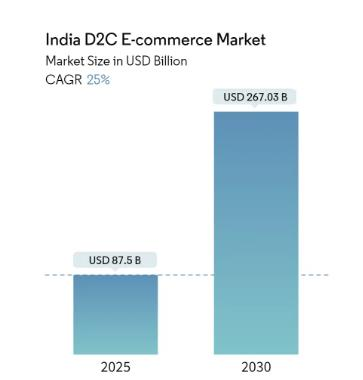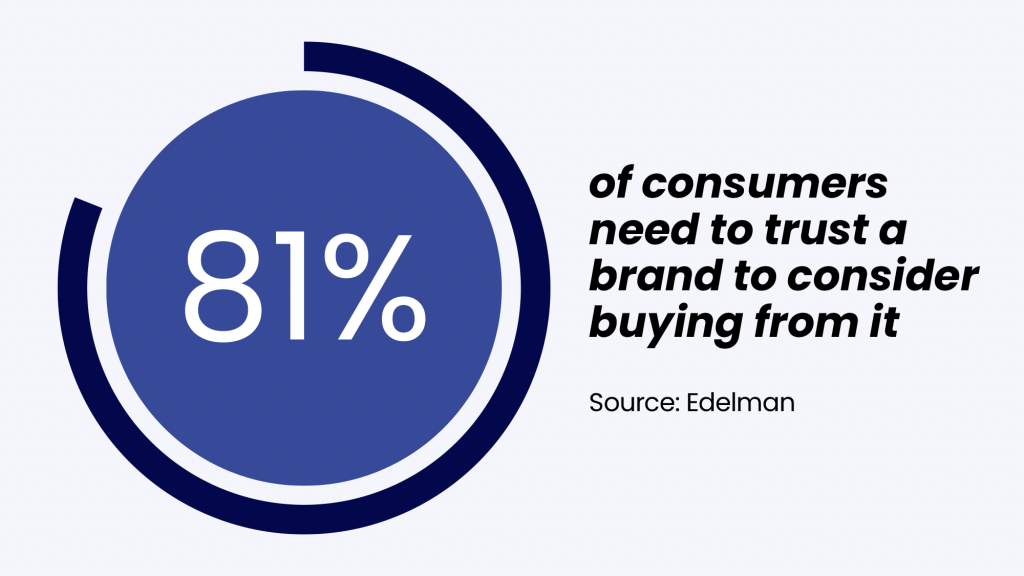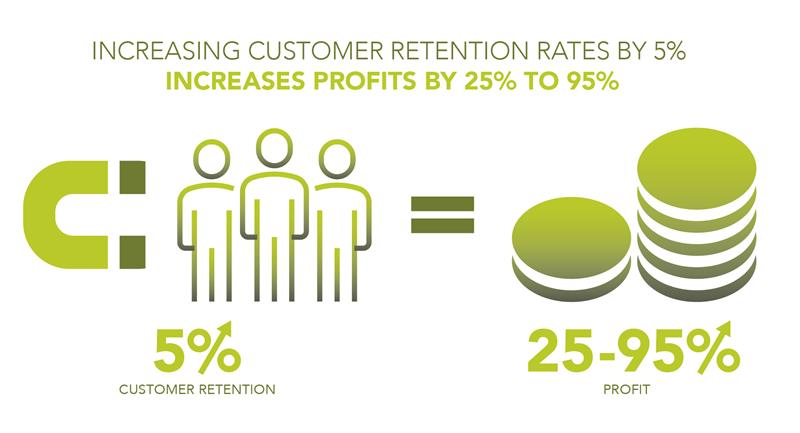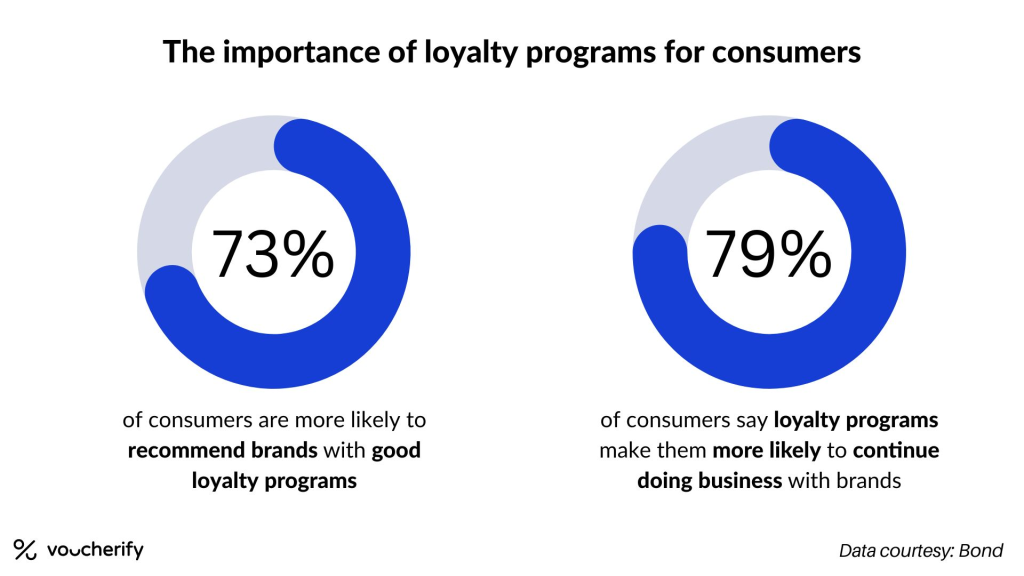How to Build a D2C Brand That Customers Love

28th April 2025 / in Ecommerce / by Ruturaj Kohok
- Reading time: 5 mins 38 Sec
Let’s start with some facts –
The pandemic has boosted D2C marketing adoption by a lot. Consumers now feel more at ease buying straight from brands.
The D2C e-commerce model gives better profit margins since it cuts out retailer commissions. Brands can price their products competitively and keep more money.
Data ownership stands out as the most powerful advantage. Traditional retail can’t match our ability to gather first-party data that creates individual-specific experiences customers love.
Modern brands use this informed customisation approach to maximise order value and customer loyalty.

Source: Mordor Intelligence
The market numbers also look amazing when it comes to D2C business models in India. It is expected to grow at a CAGR of around 25%.
The market is $87.5 billion in 2025 and is expected to jump to $267.03 billion by 2030.
British e-commerce Small and Medium-sized Businesses also see D2C brand sales as their biggest chance next year, with 46% backing this view.
Along the same lines, this blog will discuss how to build a D2C brand that goes beyond just selling products. You’ll learn to create real connections with customers who become your most passionate supporters.
Let’s walk through it together!
#1 Create a mission-driven brand story
A compelling brand story is the foundation of a successful D2C business model in today’s consumer landscape.
Modern consumers make decisions beyond product quality or price—they evaluate what brands stand for.
Research shows that 75% of consumers worldwide expect brands to contribute to their well-being and quality of life.
1.1 What are your brand’s beliefs and purpose?
Your D2C business’s “why” forms the core of any mission-driven brand story – the fundamental reason your business exists beyond generating profit.
Your brand’s purpose acts as your north star and guides every decision from product development to customer interactions.
This approach works especially when you have millennial customers, as 71% prefer brands that drive social and environmental change.
Clear values and beliefs give your D2C brand its most important advantage. Defining your mission isn’t just good marketing—it’s good business.
A well-expressed purpose helps humanise your brand and creates lasting impressions in consumers’ minds. Your purpose should be clear in one or two sentences.

For instance, Mamaearth, a skincare brand, follows its mission statement, “to make safe, natural, and toxin-free personal care products easily accessible for everyone.”
This works because their focus on “toxin-free” taps into conscious parenting and wellness trends, earning trust and credibility, especially from young moms.
1.2 Does your story strike a chord with your audience?
Your D2C marketing strategy should include a narrative that connects emotionally with your target audience once your purpose becomes clear.
Stories touch people deeply and forge authentic emotional connections that distinguish your brand in a crowded marketplace.
To create a compelling brand story:
- Learn about your audience to understand their values, aspirations, and pain points
- Stay true to your brand’s identity rather than jumping on trending topics
- Use authentic storytelling that aligns with your direct-to-consumer brand values
D2C storytelling works when it creates emotional connections and motivates your audience to take action, whether making a purchase or becoming a loyal promoter.
As Simon Sinek famously noted, “People don’t buy what you do; they buy why you do it.“
#2 Build trust through content and transparency
Trust is the lifeblood of successful D2C brands.

Source: Drive Research
Research shows that more than 81% of consumers need to trust a brand before making a purchase. Also, 56% of customers pledge lifelong loyalty to companies that offer complete transparency.
Here’s how you can build this vital foundation.
2.1 Educate people through long-form content
Long-form content stands as a powerful tool in your D2C marketing arsenal. High-quality, in-depth content pulls in more traffic than shorter pieces consistently.
Readers who find valuable content on your site stay longer. One study revealed that increasing long-form content tripled average site time from 90 seconds to 4.5 minutes.
Your D2C business model gains multiple benefits from this extended connection:
- Establishes your expertise and authority in your field
- Positions your brand as a trusted educator rather than just a seller
- Drives organic traffic through better search engine rankings, as the average content length of Google’s top 10 results is around 2,450 words
Complete guides, detailed case studies, and behind-the-scenes videos provide value beyond your products and encourage deeper connections with potential customers.
2.2 Be transparent about your process and values
Transparency in operations is significant to D2C e-commerce success – customers value brands that explain data usage clearly.
Your manufacturing processes, ingredient sourcing, and business practices should be open. This approach turns sceptical browsers into confident buyers.
Clear communication channels and specific response time promises (preferably within 24 hours) show accountability.
FAQs demonstrate both customer care and your dedication to problem-solving.
D2C growth strategy relies on authenticity. Behind-the-scenes content that showcases team members and product development makes your brand more relatable.
This transparency helps distinguish you from competitors who keep their operations hidden from customers.
#3 Focus on growing organically
D2C brands need authentic human connections to grow organically.
For such organic growth, you can opt for SEO for D2C brands and build lasting relationships with your customers.
Other than that, let’s browse through more ways for an organic D2C growth strategy.
3.1 Get more User-Generated Content

Source: Billo
User-generated content (UGC) gets a 28% higher engagement rate on social networks than traditional brand content and gets seven times more engagement.
This makes it a powerful tool for authentic marketing.
About 87% of brands use UGC to share authentic content. Your D2C e-commerce strategy should focus on customer-created materials. Here’s how to get more UGC:
- Ask for product reviews and photos in post-purchase emails
- Start unique hashtag campaigns that reward participants
- Add review upload options right on your product pages
Social media aggregation tools help you track all content and showcase products in real-life scenarios.
3.2 Use micro-influencers to reach audiences authentically
Your D2C business can benefit from micro-influencers even with their smaller followings.
Their audience engagement rates are three to five times higher than macro-influencers.
People notice these creators as more relatable and trustworthy than big brands. This helps you cut through consumer scepticism with honest feedback.

For instance, Fitbit, a well-known fitness technology brand, often collaborates with micro-influencers with a follower count of under 30,000 to ensure maximum impact of their D2C marketing strategy.
3.3 Build a community around shared values
Your D2C brand model thrives where content, community, and commerce meet.
Real connections need customised experiences, active participation, and transparency. An online community turns buyers into brand champions.
Low initial participation is common, but you can ask loyal customers or influencers to get things started.
Early members who get exclusive rewards or recognition often help the community grow faster.
When customers feel valued, they become brand ambassadors who naturally share their experiences with friends and family.
#4 Turn customers into brand promoters
The best D2C brands know their customers can be more than just buyers—they can become brand champions and co-creators.

Source: Cain & Co.
A Cain & Company study shows that a 5% boost in customer retention can increase profits by 95%.
These numbers show why turning regular shoppers into long-term brand champions matters.
4.1 Ask for feedback and ideas from your audience
D2C business models let brands test ideas, learn, and adapt quickly through direct customer connections.
Your brand can get valuable insights that spark innovation by creating continuous feedback loops.
It is famously said, “Feedback goes a long way in customer retention. And sometimes negative feedback is still better than a positive review in terms of retention”.
Your D2C growth strategy should include these feedback approaches:
- Monitoring social media channels where customers share their thoughts freely
- Analysing customer support interactions to spot common problems
- Using post-purchase surveys to capture fresh experiences
Customer co-creation (letting customers help develop new products) has gained traction because it helps companies understand and meet customer needs better.


Success stories like MiAdidas (Adidas’ custom shoe platform that allowed users to personalise their sneakers) and (now Nike By You – a platform by Nike that allows customers to design custom sneakers online) show how personalisation through co-creation builds stronger brand connections.
Lately, the impact of AI and personalisation on D2C e-commerce success has been tremendous in improving D2C brands’ conversion rates.
4.2 Reward loyal customers with exclusive perks
Smart D2C marketing now focuses on keeping customers as much as finding new ones.

Source: Voucherify
Research shows 73% of consumers will recommend brands with good loyalty programs, and 79% stay loyal to brands offering these programs.
Direct-to-consumer brands should build loyalty programs that:
- Give real value beyond basic points and discounts
- Include exclusive experiences like early sale access or events
- Create individual-specific rewards that appeal to different customer groups
Conclusion
The digital world changes faster each day. Brands that focus on authentic connections while making use of information keep their edge.
Note that real relationships with customers ended up driving sustainable growth better than short-term sales tactics, so get to building a D2C e-commerce website for your store today.
Your goal should be to build a brand that customers don’t just buy from, but one they endorse to others with passion.
Need help with setting up your digital D2C store? Get in touch with us for expert help!





























